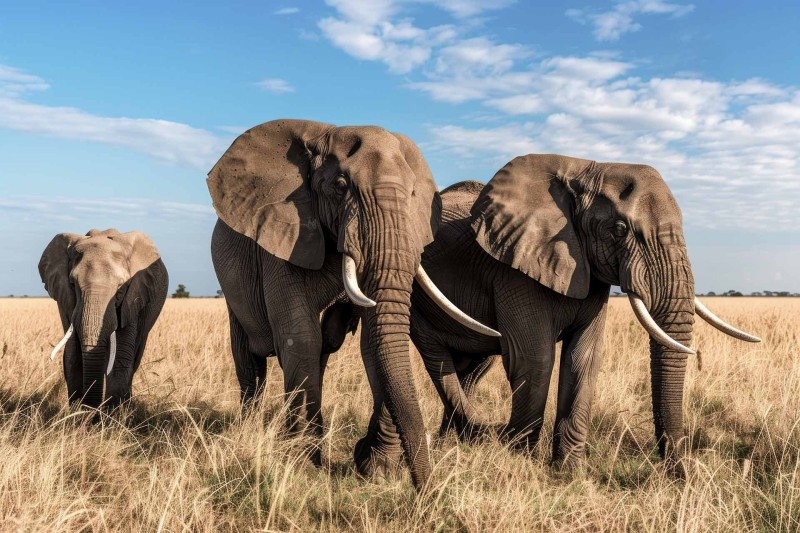
Zimbabwe has authorized the culling of 200 elephants to address food shortages caused by one of the worst droughts in decades. With nearly half of the country’s population at risk of acute hunger, the Zimbabwe Parks and Wildlife Authority aims to use elephant meat to feed struggling communities.
Tinashe Farawo, the authority’s spokesperson, explained that Zimbabwe’s elephant population has surged to over 84,000, nearly double the environment’s capacity of 45,000. This overpopulation not only strains resources but also exacerbates human-wildlife conflicts, with elephants frequently encroaching on human settlements in search of food and water.
Environment Minister Sithembiso Nyoni echoed these concerns, stating that overpopulation leads to resource scarcity and conflict. Plans are underway to involve communities, particularly women, in processing and distributing the meat to those in need.
Zimbabwe’s decision mirrors a similar culling initiative in Namibia, where 700 wild animals, including elephants, were slaughtered to relieve food insecurity, with over 125,000 pounds of meat distributed. Critics, including animal rights groups and conservationists, have raised concerns about the impact of such actions on wildlife and the potential for an unsustainable demand for bushmeat.
Despite the backlash, authorities maintain that the culling is necessary not only to provide food but also to reduce human-elephant conflict, which has already resulted in 31 deaths in Zimbabwe this year alone. Farawo emphasized that this is the first elephant cull in Zimbabwe since 1988 and is intended to protect both communities and wildlife from further harm.
 GhArticles.com Every News in Detail
GhArticles.com Every News in Detail



